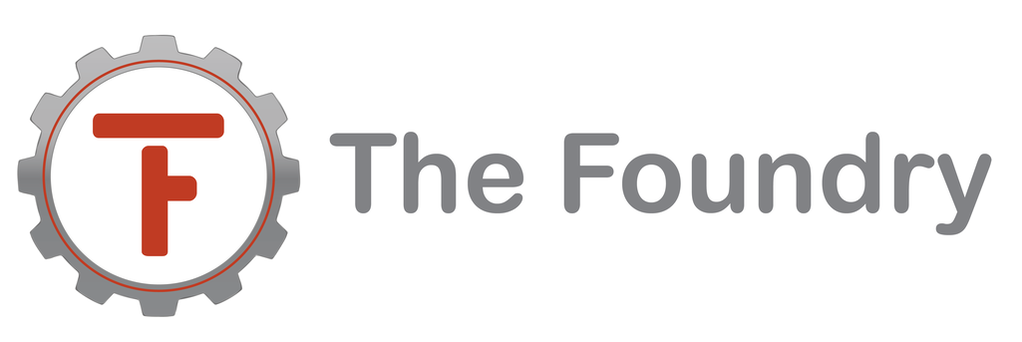by Laura PearsonAs parents, one of our main goals is to raise our children to be responsible and financially literate adults. To do this, it’s important to start teaching them financial lessons from a young age. The Foundry has compiled a list of tips and tricks that can help get your kids on the right path toward financial literacy.
Allowance Giving your children an allowance is one way to teach them about money management. The exact amount will depend on the age of your child, but making sure they understand the correlation between work and money is key in this stage of their development. Make it a point to let them know that their allowance will be used for items such as snacks or toys instead of big-ticket items like a new phone or laptop. Shopping Choices Involvement in shopping decisions teaches kids how to compare prices and think through decisions before making purchases. When shopping with your child, make sure you explain why you are choosing certain brands over others or why buying generic items is sometimes the better option over name-brand items. This type of real-time learning experience helps children understand the concept of budgeting and how to stick within their means when it comes to spending money. Decline Requests For Money When Appropriate Teaching children about financial responsibility is an important life skill. One aspect of this is saying “no” to money and gift requests when appropriate. While it can be difficult to do so, explaining the importance of making thoughtful decisions about spending and saving will help children understand the value of money and how to manage it responsibly in the future. Savings Account Opening a savings account in your child's name is a wise step that can aid in teaching financial responsibility at a young age. By setting up automatic deposits into this account, your child will not need to worry about managing their funds, allowing them to focus on other important things. This encourages good savings habits that will be beneficial for them in the long run. Number Exercises and Games Introducing games and activities that involve numbers is an effective way to nurture your child's financial literacy skills. Board games give children a practical experience of using numerical concepts while providing them with a fun pastime. Taking the initiative to discuss these concepts during playtime can strengthen their understanding of related subjects outside the classroom setting. Home Ownership Financial Concepts It's crucial for children to grasp the basics of home ownership, including property tax implications, to prepare them for the future. They can get a better sense of what expenses to expect as adults by exploring examples of mortgage payments for specific properties based on price points. This understanding can help them make informed decisions about purchasing a home after college or graduating from high school. Tips for Young Entrepreneurs Encouraging your young entrepreneur to start their own business can be a great way to introduce them to the business world. With online resources and crowdfunding websites, it's easier than ever to find guidance and funding for their project. This can provide valuable lessons on finance while pursuing something they're passionate about. Raising financially literate kids is a vital aspect of parenting. However, this task does not have to be intimidating. There are numerous simple steps that parents can take to achieve this goal, such as providing an allowance, teaching the concept of home ownership, assisting young entrepreneurs in starting businesses, and exploring various methods of obtaining capital. All these practices can help reassure any parent interested in fostering financially literate children. To support community workforce development, visit The Foundry today! Image via Pexels Laura Pearson is a co-creator of Edutude. Through Edutude, Laura strives to find unique, creative ways for parents and educators to encourage students to be challenged, motivated and excited by learning. In addition to her work with Edutude, Pearson is an advocate for children's rights and education. She volunteers with local organizations that promote child literacy and provides mentorship to young students seeking educational guidance.Apart from her professional work, Pearson is an avid traveler with a love for immersing herself in diverse cultures. She has backpacked through Europe and Asia, and credits her travels with broadening her perspective and providing unique learning experiences.
0 Comments
by Joyce Wilson Why Your Career Development Plan Should Prioritize Emotional Intelligence
In today’s educational landscape, teachers are more than just those that spout knowledge to their students. They are driven to foster an environment of inclusivity, emotional support, and understanding. Your emotional intelligence is crucial to helping you maintain all of your roles as an educator. Today on The Foundry, we will take a look at how and why a professional development plan focused on emotional intelligence matters in education. What Is Emotional Intelligence? Before you can create a career development plan that prioritizes emotional intelligence, you have to know exactly what that means. In a nutshell, this is a soft skill that allows you to understand and manage your own thoughts and feelings and read those of others. As you can imagine, this is a critical trait for teachers. The First Steps When you’re ready to create a plan focused on emotional intelligence, you need to first know exactly where your current level lives. You can use an assessment test to better understand your strengths and also areas where you might need improvement. Once you have a grasp on your own emotional capacity, you can begin to set SMART goals. Goals to Enhance Your Emotional Intelligence While your goals will be based on your current level of emotional awareness, a few that you might consider include developing empathy, being more self-aware, improving your communication skills, managing your stress, and practicing gratitude, the latter of which the Alfred blog explains can help you create a better environment within your classroom. What Are Your Resources? Now it’s time to look at the resources you have available to you. This could be any of the many charts, worksheets, textbooks, and activities available online. Another option is to talk with your administrators to find out if your district is willing to send you to in-person workshops for any of the areas that you’d like to improve. How to Document Your Progress There are many ways to document your progress. One way is to take stock of how you feel once each month. Are you less burnt out and worn down than you were before? Are your students more engaged? Make notes and then save them as a PDF file so that you can look back on these whenever you're looking to measure any specific area. One quick tip here. You’ll want to use a PDF splitter to separate PDF pages based on your specific goals. This makes it easy to download and share with others or to the cloud for easy access. Should You Start an Education-Based Business? If your professional development plan also includes getting out of the classroom, it’s never too early to start looking into emotional intelligence as it relates to running a business. You might, for example, begin counseling other educators on how to improve their own prospects. If you do branch out on your own, form an LLC, which may (depending on your state's rules and regulations) remove liability and help you maintain a flexible management structure as your business grows. A resource you can use here is an online formation service, which is cheaper than an attorney. It does not matter whether you are a beginning substitute teacher or a tenured educator with new plans for the future; there’s always room for improvement. When it’s time to incorporate emotional intelligence in your professional development plan, start by knowing your goals, which may even include starting your own business. Then, make sure that your plan is easily editable and accessible (ideally via PDFs) so that you can review your objectives from anywhere. Ultimately, however, you must also be open to changing your plan as your self-awareness improves. Image via Pexels Joyce Wilson may have retired from teaching but that doesn’t mean she has lost her passion for education. On her site, Teacher Spark, she is working to build a resource of engaging lesson plans, activities, and other fun learning opportunities for her fellow educators and for parents. |
ArchivesCategories |
|
Follow us on:
|
|




 RSS Feed
RSS Feed




